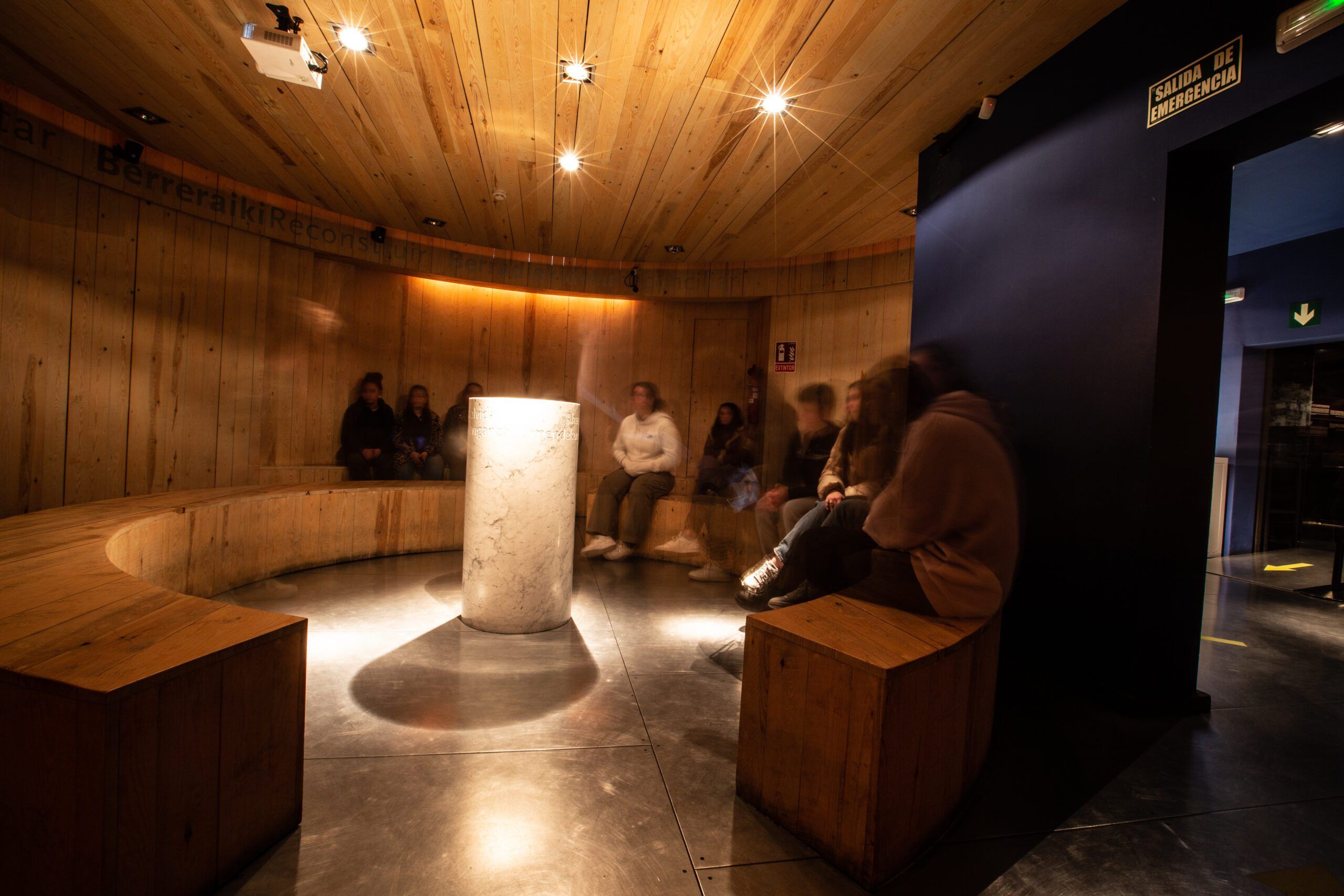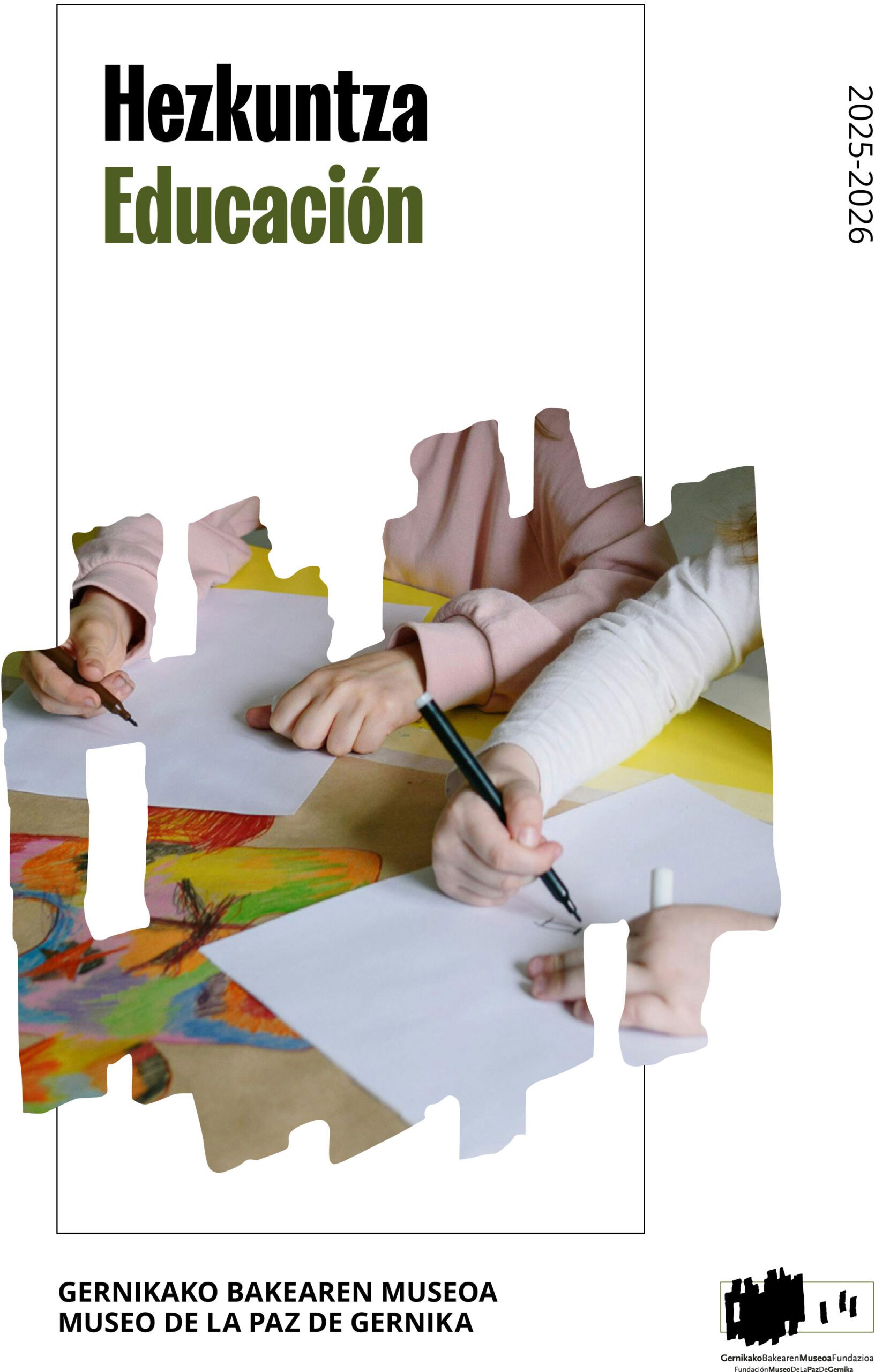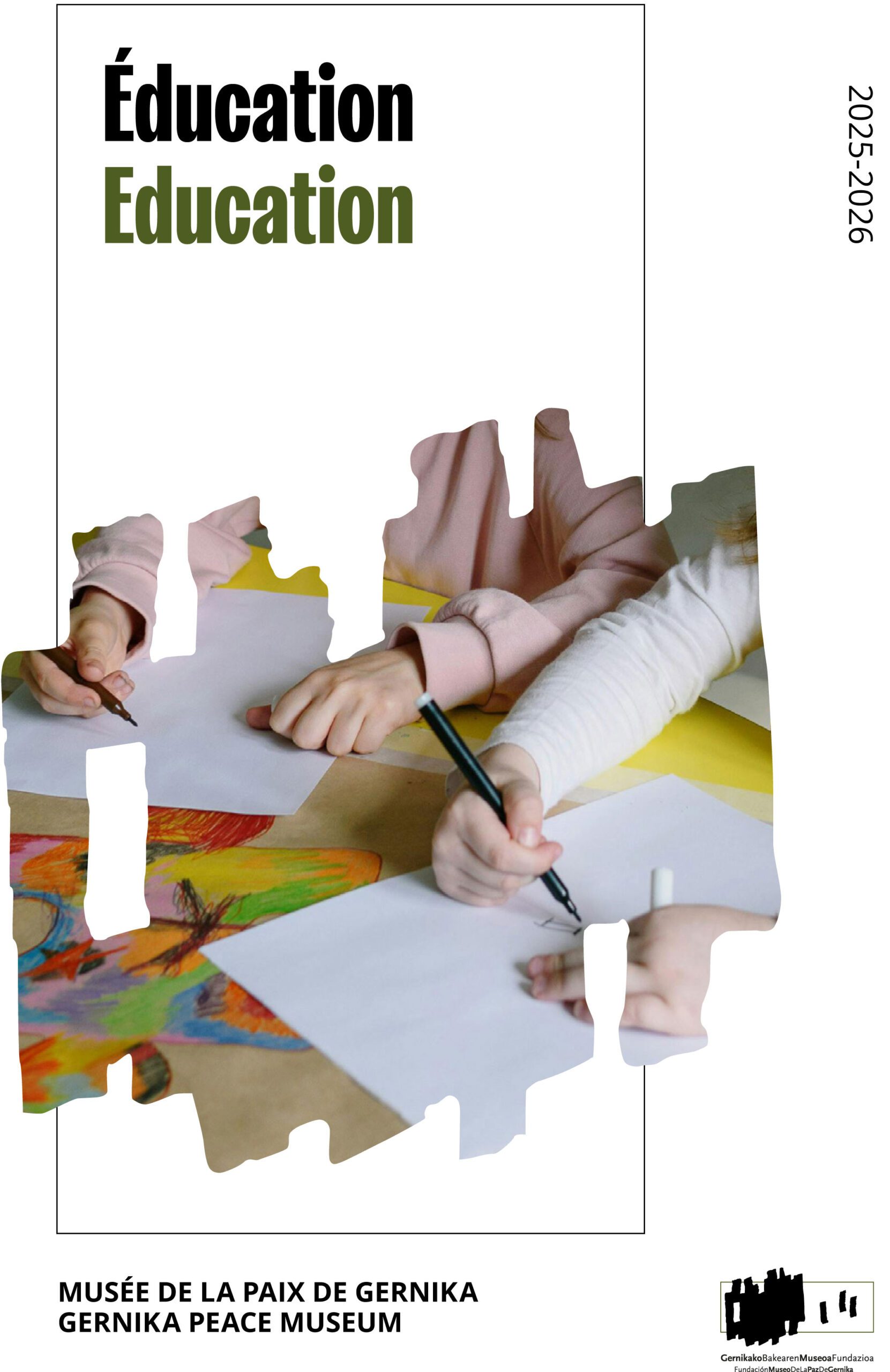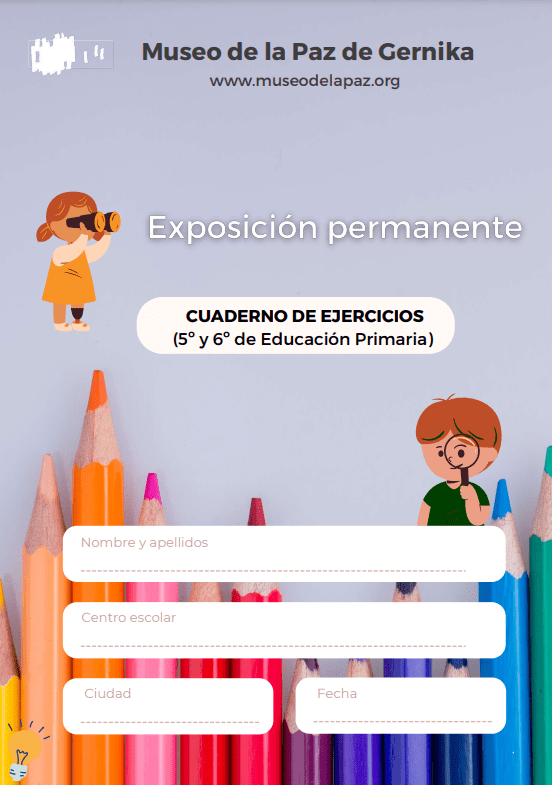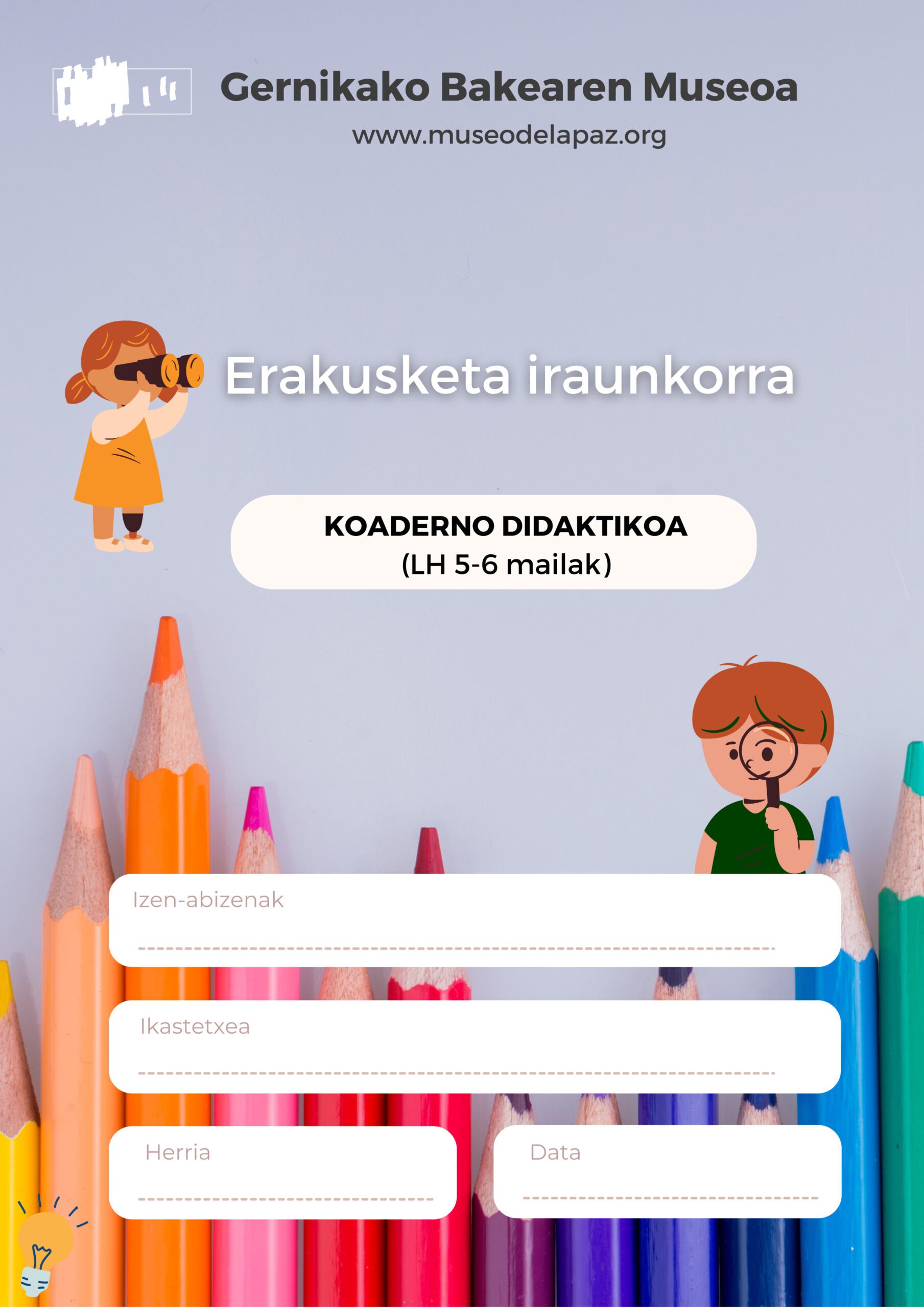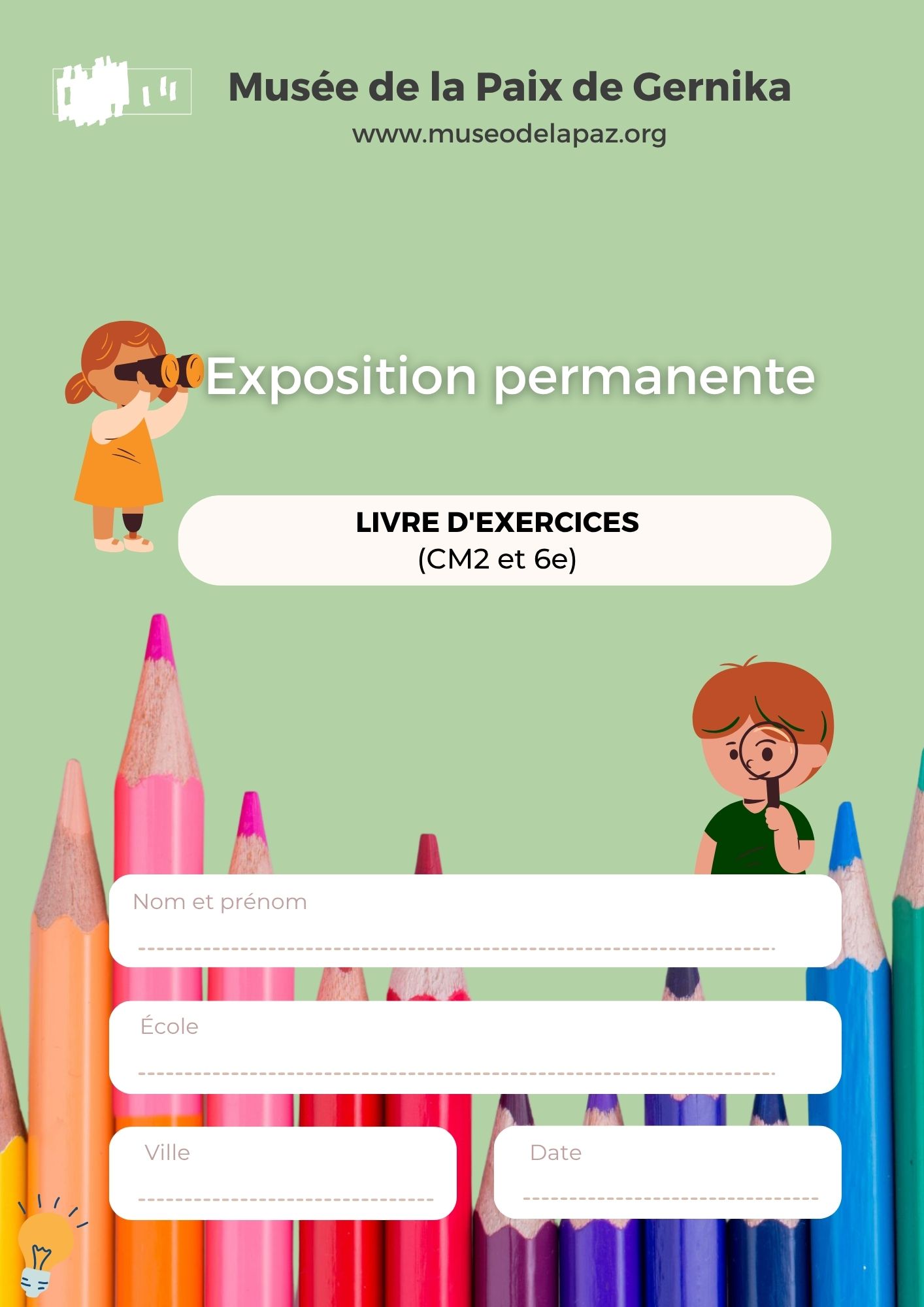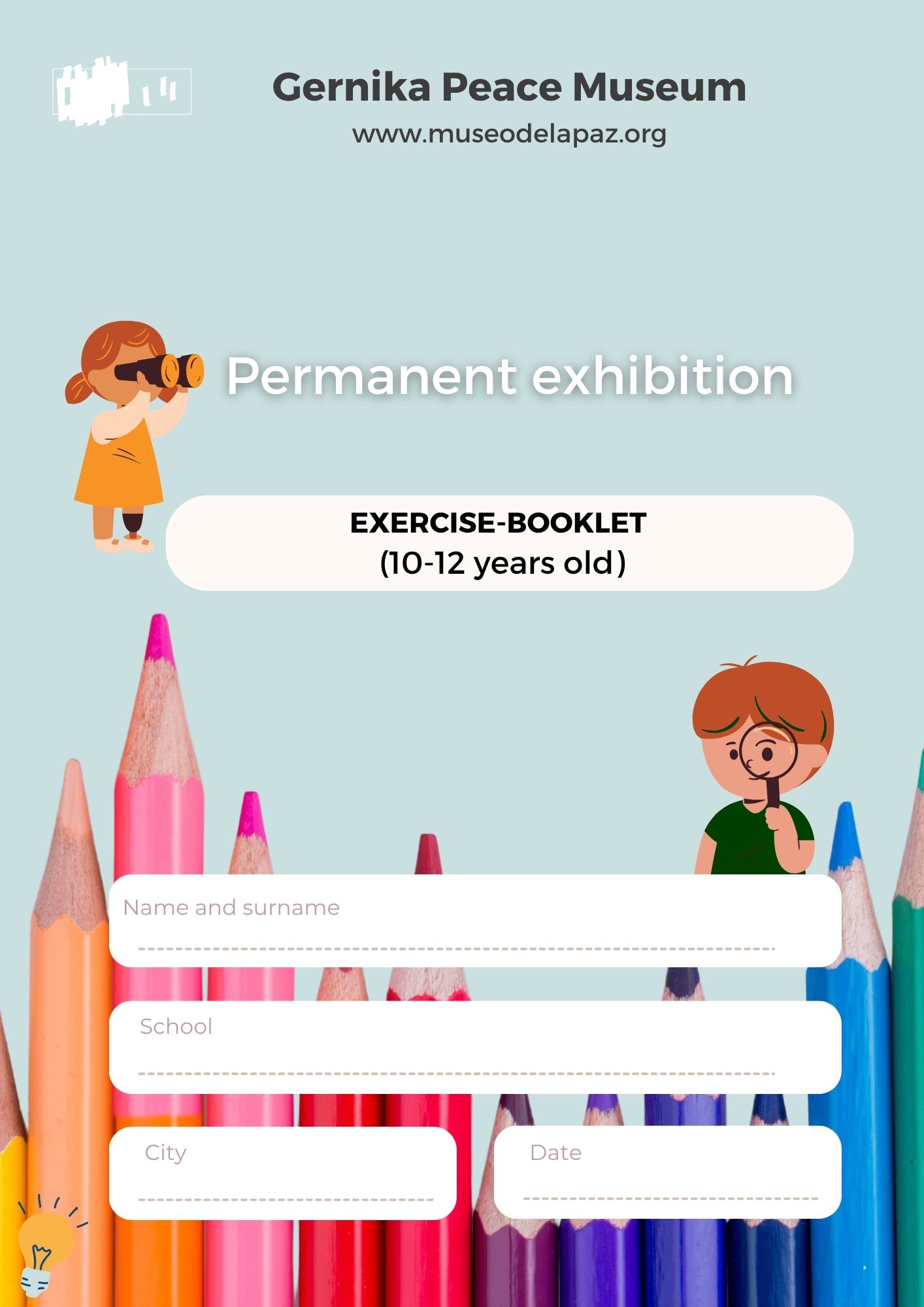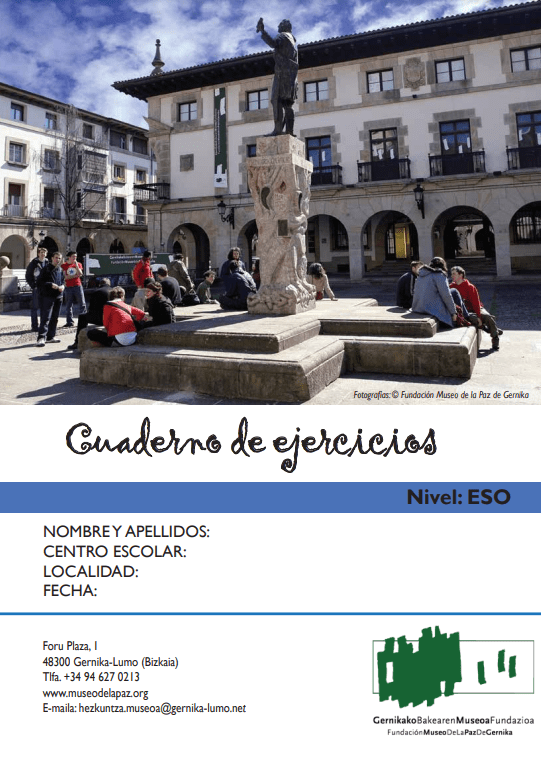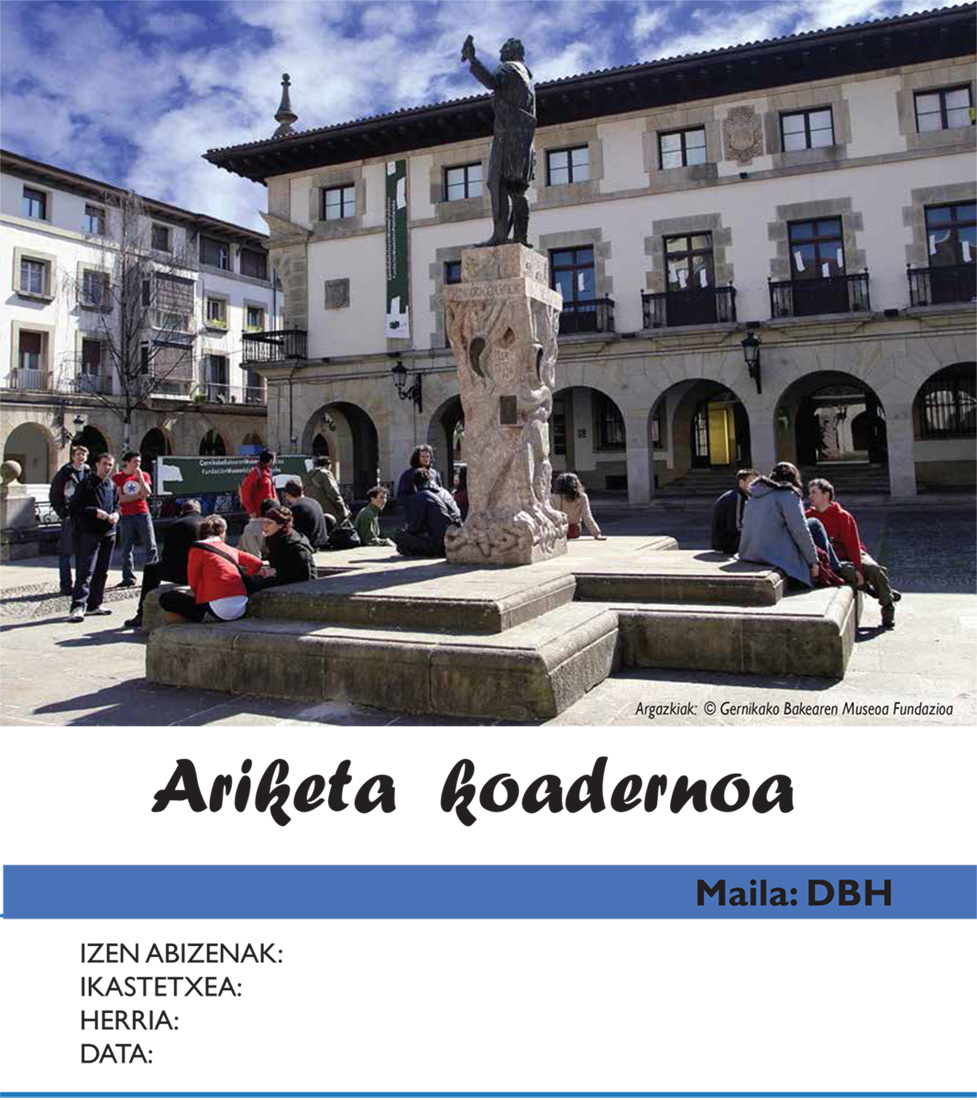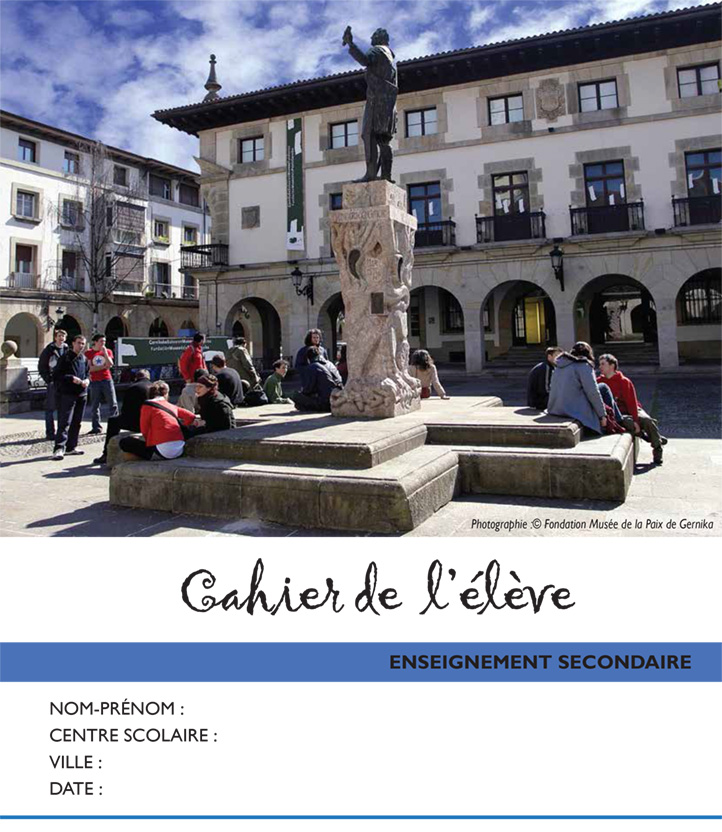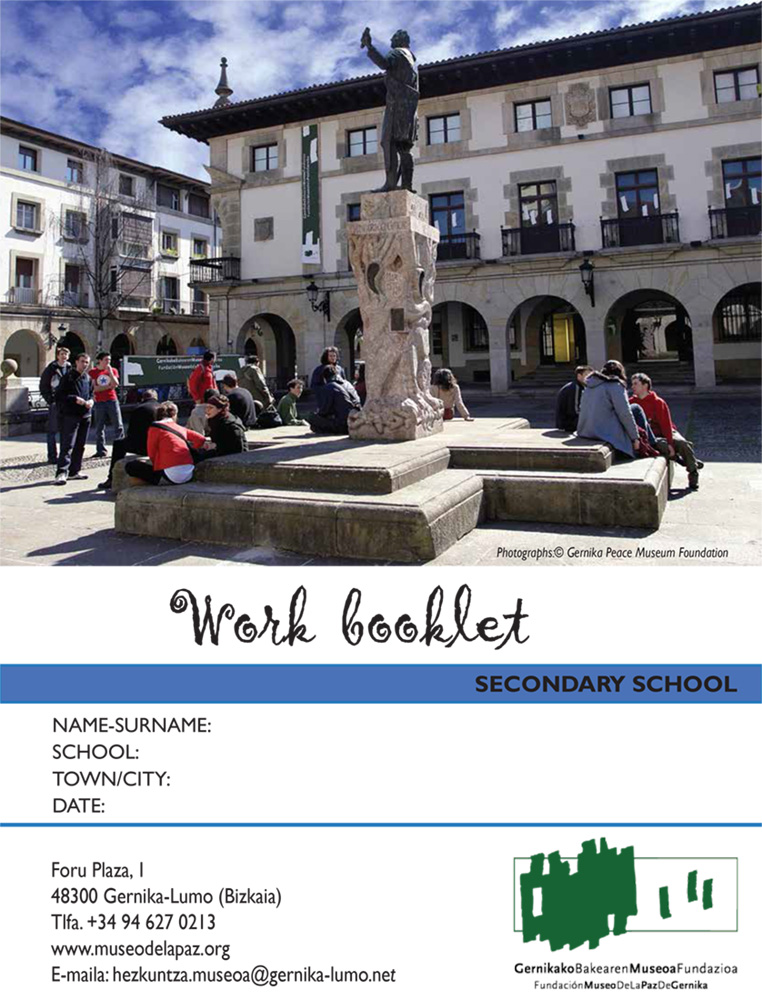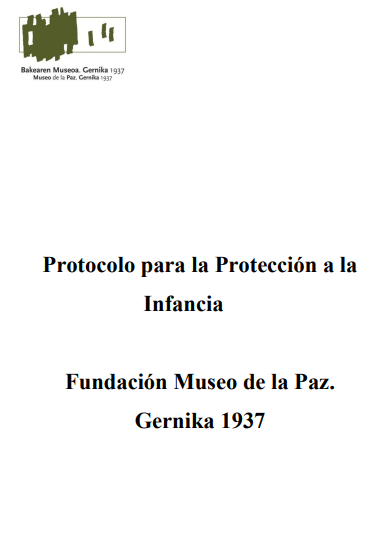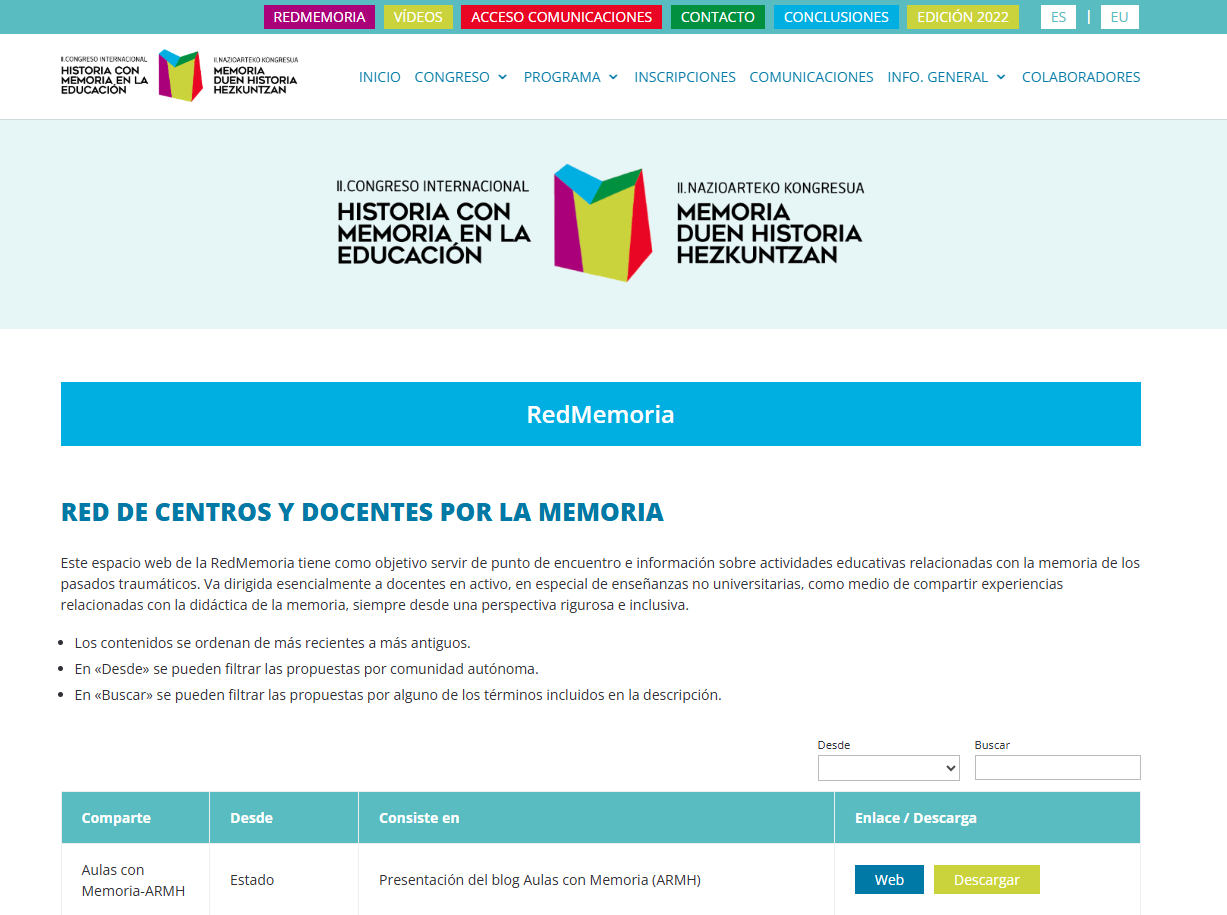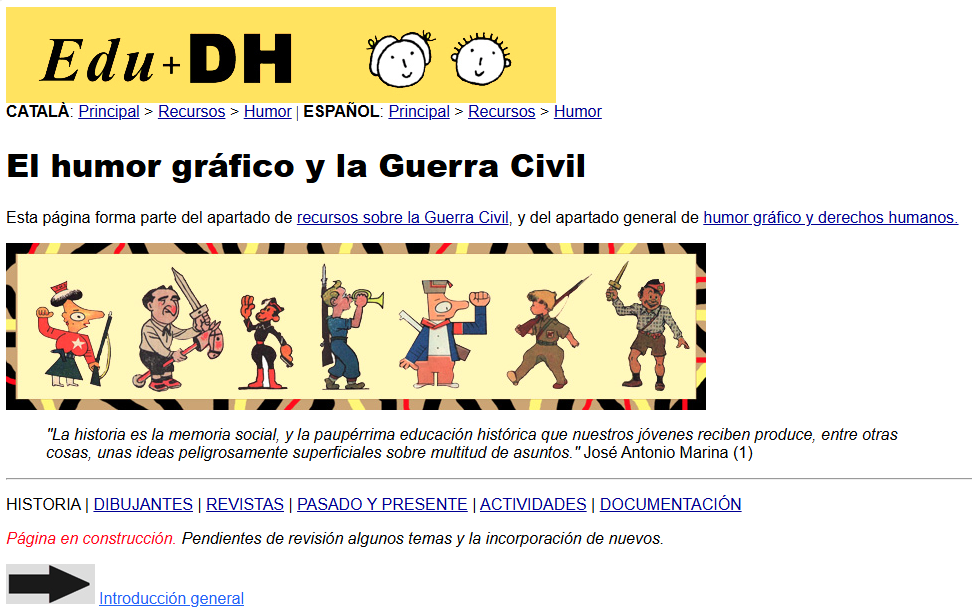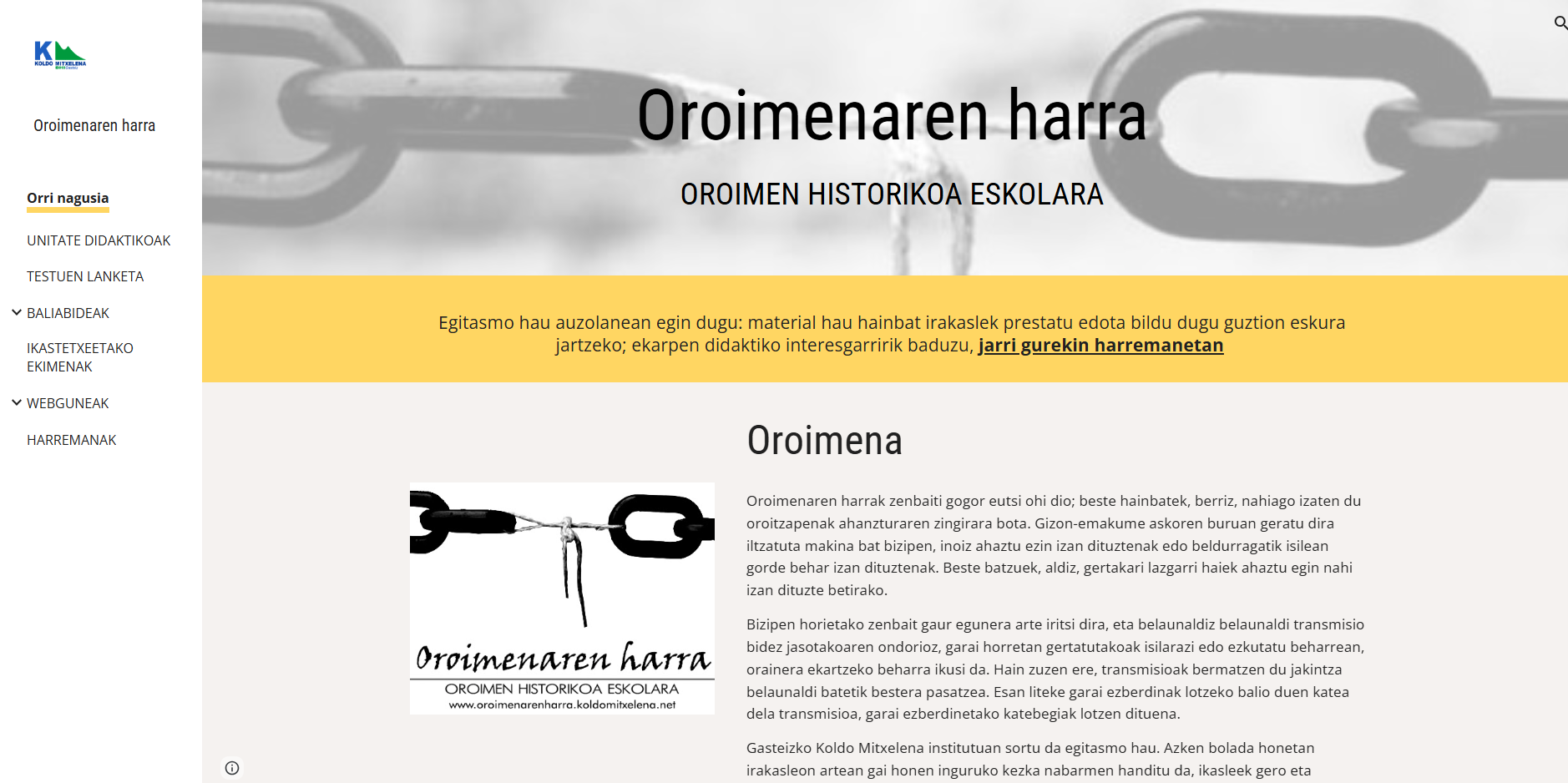The Museum’s Education Department is here to assist teachers and educators with any questions they may have. Feel free to reach out for support and guidance!
General information
Pedagogical theory
Introduction
Education is a fundamental pillar in the mission of the Gernika Peace Museum. Since its foundation, the museum has aimed not only to preserve the historical memory of the bombing of Gernika, but also to educate current and future generations about the importance of peace, empathy and respect for human rights. In the museum’s educational area, a series of workshops designed to address these issues in an interactive and meaningful way are held.
Methodology and Pedagogy of the Educational Area
The methodology and pedagogy of the educational area are based on several fundamental principles that ensure that the activities are effective and meaningful for the participants.
The following are the highlights of this methodology.
1. 🧠 🔬Experiential learning
One of the pillars of the museum’s educational methodology is experiential learning. Rather than focusing solely on the transmission of theoretical information, activities are designed to provide practical experiences that enable participants to learn in an active and meaningful way.
2. 🧑🦱👩Participant-centred approach
The learning area adopts a participant-centred approach, recognising that each person has a unique way of learning and experiencing the world. Activities are designed to be flexible and adaptable to the needs and characteristics of participants. This means that different learning styles, levels of prior knowledge and personal experiences are taken into account, with the aim of making each exercise accessible and relevant to everyone.
3. 🧠 🧐Encouraging critical reflection
Another important aspect is the encouragement of critical reflection. The workshops focus not only on the acquisition of knowledge, but also on the development of critical thinking skills. Through group discussions and reflective activities, participants are encouraged to question, analyse and reflect on the topics addressed, developing a deeper and more nuanced understanding.
4. 🎨 🎭Using art as a teaching tool
Art plays a central role in the Museum’s pedagogy. It is used as a powerful tool to explore and express ideas and emotions related to peace, empathy and human rights. Through various exercises, participants have the opportunity to channel their feelings, thoughts and content in a creative and meaningful way.
5. 👨👩👧👦 💡Promotion of group work
Collaboration and group work are fundamental skills that are actively promoted. Many of the activities are designed to be carried out in teams, encouraging cooperation, dialogue and mutual support among participants. This approach not only enhances the learning experience, but also teaches important values such as respect, solidarity and empathy.
Topics covered
The workshops and activities in the educational area of the Gernika Peace Museum address a variety of important historical and social issues. Some of the most prominent topics include:
⚔️ 🪖 Spanish Civil War: Participants explore the events and consequences of the Spanish Civil War, with a focus on the human and social impact of the conflict.
💣💣Bombing of Gernika: The bombing of Gernika, a tragic event in history that symbolises the devastation of war and the resilience of the community, is analysed in depth.
🚷🏠Exile: Workshops address the experiences of exile and forced displacement, exploring the stories of those who were forced to leave their homes.
📜 🏛️ History of Gernika-Lumo: A comprehensive overview of the history of Gernika-Lumo is offered, highlighting its cultural importance and its resilience over time.
Guidance and reservations
The aim of this programme is to advise teachers when planning their visit to the Museum. We set out to give a few necessary guidelines so that you can make a tour adapted to the needs of students and teachers around the Permanent Exhibition, the tours and the Temporary Exhibitions.
For this reason, we have launched a series of initiatives with the aim of supporting the work of the teacher or group leader, whose participation is absolutely crucial:
- 📞📲Telephone service (+34 94 627 02 13) giving information on the contents of the Museum, designed to offer orientation.
- 🧑🦱👩 It is possible to prepare the visit beforehand in the Museum, with the materials and assessment that the teacher needs.
- 📖💻 The museum makes available to teachers a wide selection of educational material through different platforms: Youtube (visits, presentations…), Instagram (news,…), and so on.
- 💻📧 Consultations can be made via email (hezkuntza@bakearenmuseoagernika.eus). Please note that, in many cases, this is the quickest and most efficient means of communication, as it is not restricted by office hours like telephone enquiries.
Materials of interest
Educational Workshops
About the programme
At the Gernika Peace Museum we offer workshops designed to complement school group visits. Each workshop uses participatory dynamics, visual materials and hands-on activities to explore themes related to peace, history and Human Rights.
If you have any queries, you can send an e-mail to hezkuntza@bakearenmuseoagernika.eus or call 94 627 02 13 from Monday to Friday from 08:00 to 13:30.
Who are they aimed at?
Groups of students and schoolchildren from Primary Education, Compulsory Secondary Education, Baccalaureate, free-time groups, etc.
Maximum number of students: Between 10 and 20 people.
Group leaders: they should remain with the group for as long as the activity lasts and should, if necessary, be responsible for group order.
Calendar
From Monday to Friday during Museum opening hours.
Please consult regarding availability on other dates and hours.
Bookings
At least two days before the visit in order to arrange the day and time (Telf.: 94 627 02 13)
Price: 60 € per group
Observations
- Groups should be as punctual as possible.
- For guidance, you can plan your visit in advance either at the Museum or online.
- It is recommended to explore the materials available in the ‘Educational Project’ section of the museum. These resources provide valuable insights for visitors.
Workshops

Gernika and the fake news
12 - 14 years old 16 - 18 years oldThe didactic workshop “Gernika and Fake News” is designed to touch on the thematic areas of ethics and history through a specific event such as the bombing of Gernika on…

Monuments: visual poems
12 - 14 years oldIf Franco’s victims became omnipresent until the end of the 1970s, the memory of the republican victims has followed the opposite path, passing from the depths of oblivion to which…

Art for the Memory
Primary educationTransform weapons of war through art, in figures of peace.

Cooperative games
12 - 14 years old Primary educationThe objective of this type of game is to promote diverse values: cooperation, group play, not leaving anyone out, learning from each other, etc.

The bombing of Gernika
12 - 14 years oldThe visit covers this historical event that represented a milestone in both the Spanish Civil War and world history.

Picasso and “Guernica”
12 - 14 years oldIt offers the chance, from the historical and symbolic point of view, to understand the most famous work by Picasso.

Hiroshima and Nagasaki
Primary educationThe workshop concerns the effects and the consequences of the atomic bomb through the story of Sadako.
Open publications
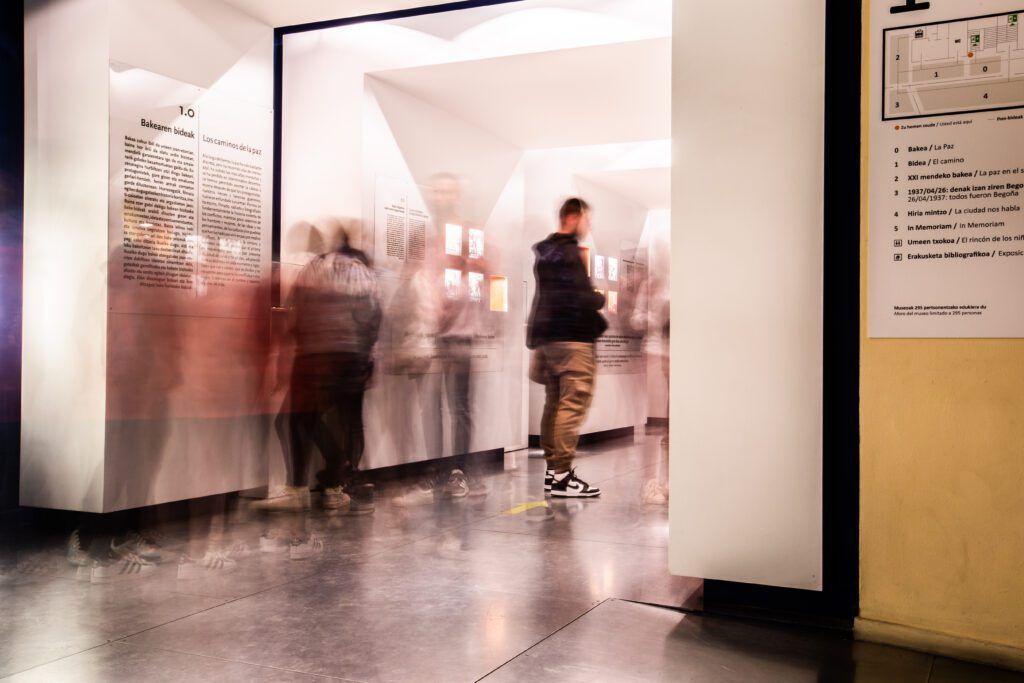
Free group visit
Educational groups can visit the Museum on their own, guided by their teachers. If you are interested in visiting the Gernika Peace Museum in a group (+ 8 people), please contact us to make a reservation.
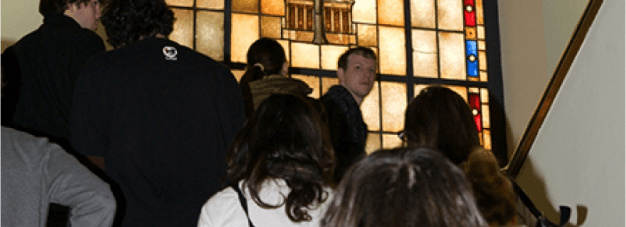
The guided tour
Guided tours of the museum’s permanent exhibition. Prior booking required here. If you are interested in visiting the Gernika Peace Museum in a group (+ 8 people), please contact us to make a reservation.
For families
Are you ready for an exciting family journey through time? Our museum will take you back to a turbulent period in our recent history: the Spanish Civil War. Here’s a sneak preview of what you’ll find:
Online learning
Digital resources to learn about Peace, Human Rights, the history of the Bombing of Gernika, the Gernika Peace Museum and much more.
